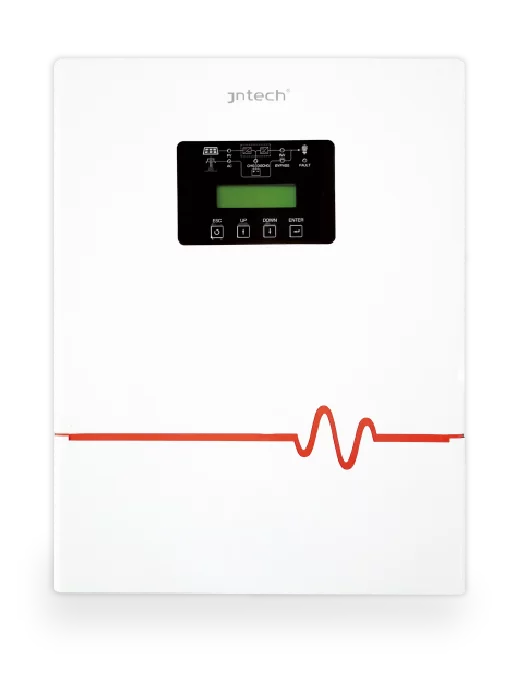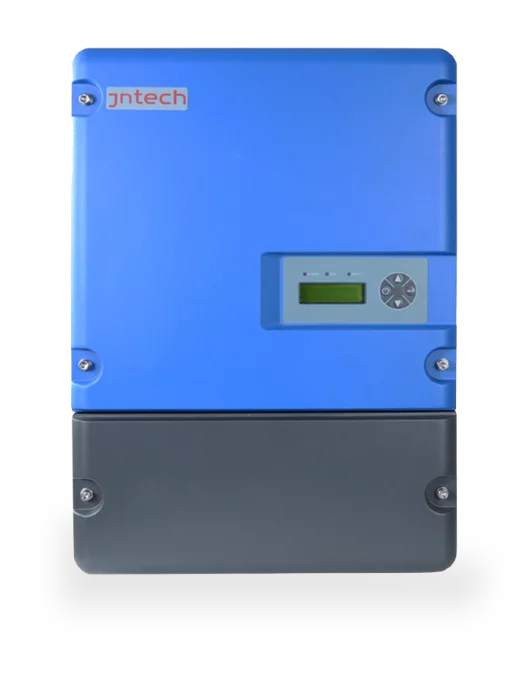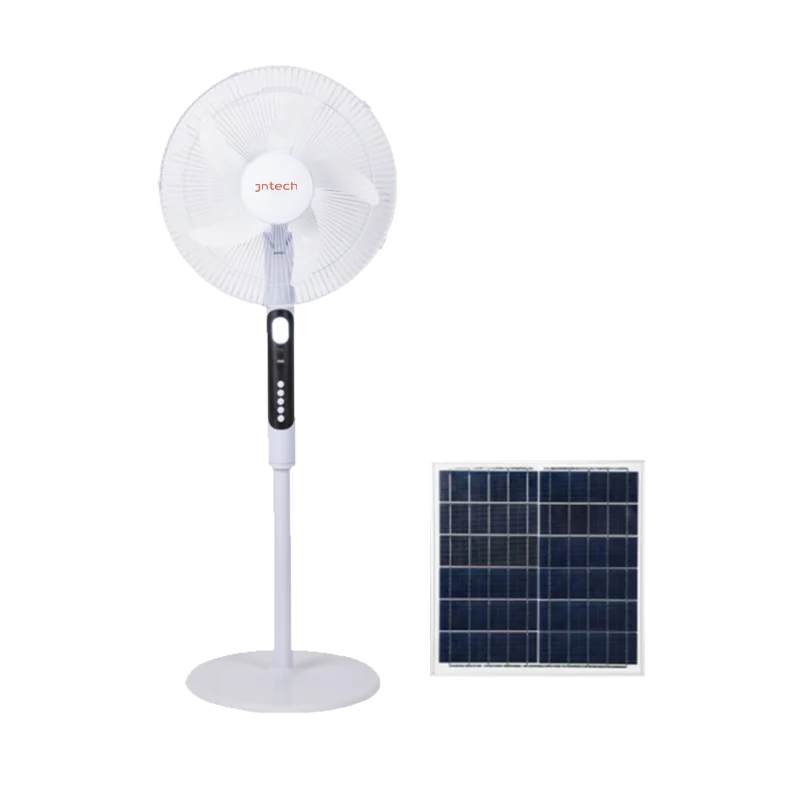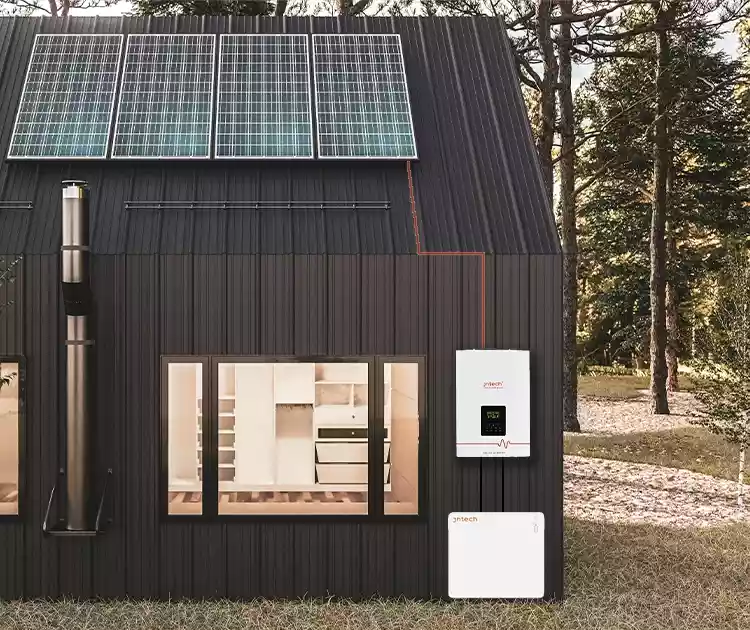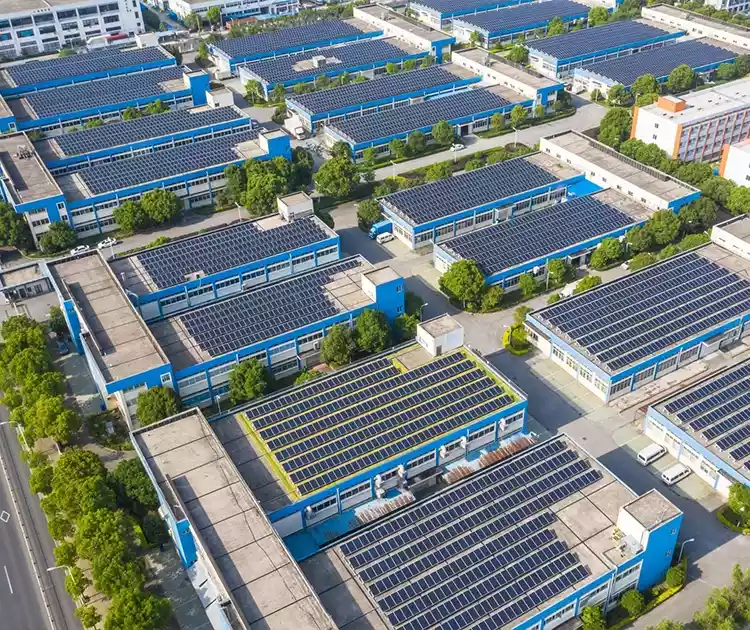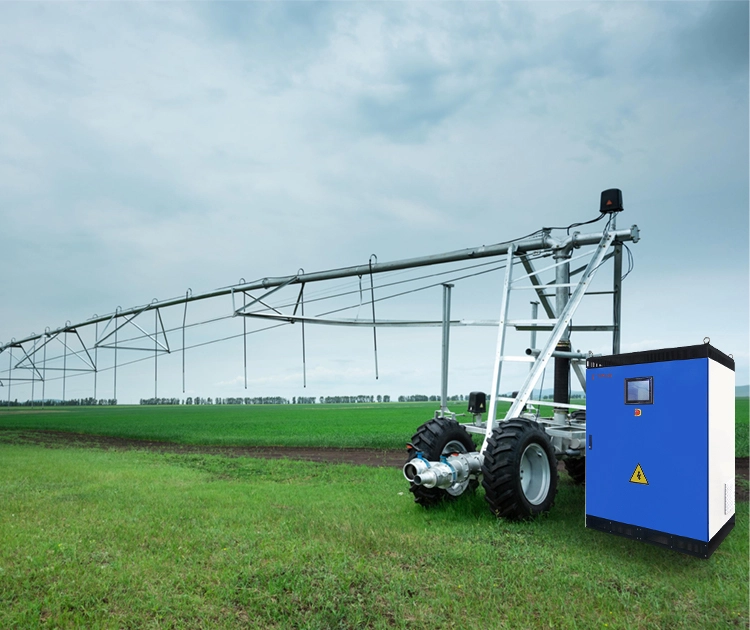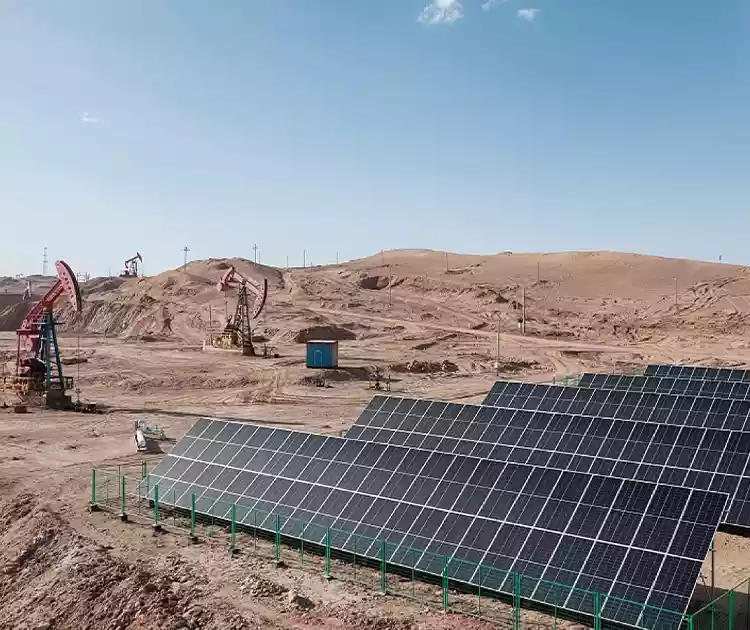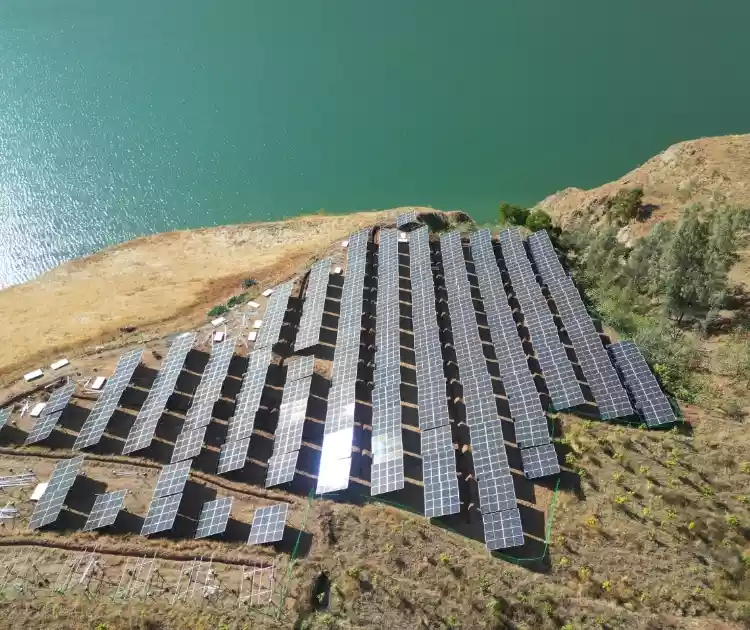Hướng dẫn toàn diện về Hệ thống lưu trữ năng lượng di động tại nhà
Thời gian phát hành: 27-10-2025
Hệ thống lưu trữ năng lượng di động tại nhà (PESS) đang trở thành một tính năng thiết yếu của những ngôi nhà hiện đại. Những hệ thống này không chỉ cung cấp nguồn điện linh hoạt mà còn đóng vai trò là nguồn năng lượng thiết yếu trong các trường hợp khẩn cấp, tăng tính linh hoạt và độ tin cậy cho việc sử dụng năng lượng tại nhà.
JNTech sẽ giải thích các khái niệm cơ bản, nguyên lý hoạt động và tiêu chí lựa chọn hệ thống lưu trữ năng lượng di động tại nhà để giúp bạn đưa ra lựa chọn sáng suốt hơn.
Mục lục
Hệ thống lưu trữ năng lượng di động tại nhà là gì?
MỘT hệ thống lưu trữ năng lượng di động tại nhà Sử dụng pin để lưu trữ năng lượng điện, thường là pin lithium. Hệ thống có thể lấy điện từ các nguồn như lưới điện, hệ thống năng lượng mặt trời và máy phát điện gió, cung cấp nguồn điện dự phòng cho gia đình trong thời gian nhu cầu cao điểm hoặc mất điện. Không giống như các hệ thống lưu trữ năng lượng truyền thống, hệ thống lưu trữ năng lượng di động nhỏ gọn và nhẹ hơn, giúp dễ dàng di chuyển trong nhà, phù hợp cho cả nhu cầu sử dụng hàng ngày và dự phòng khẩn cấp.
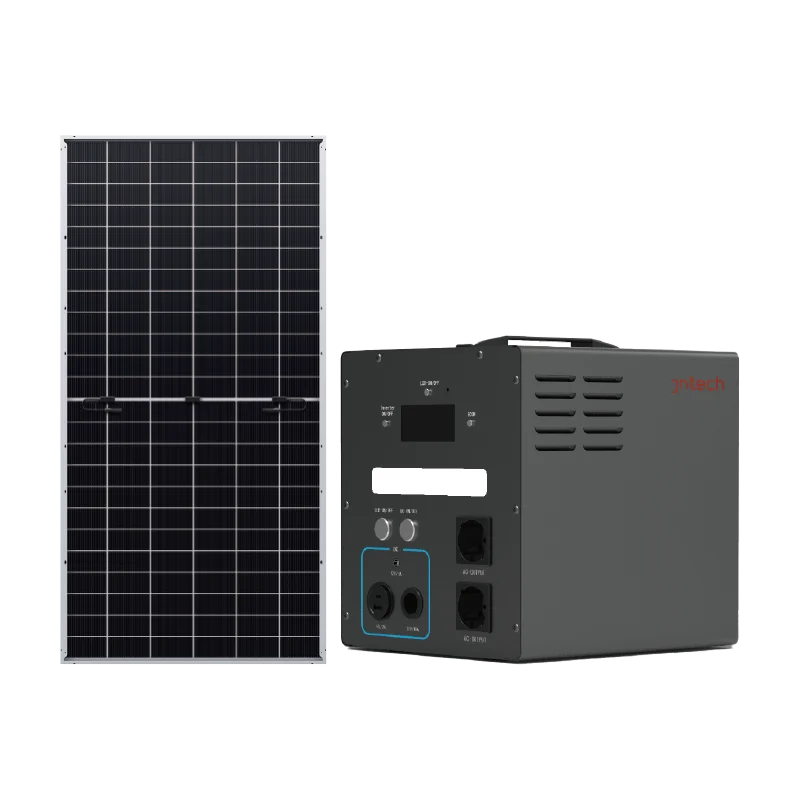
Hệ thống lưu trữ năng lượng di động tại nhà hoạt động như thế nào
Các thành phần cốt lõi của hệ thống lưu trữ năng lượng di động tại nhà bao gồm hệ thống quản lý pin (BMS), bộ biến tần và hệ thống sạc và xả. Quy trình thường như sau:
- Sạc pin: Điện được lưu trữ trong pin lithium-ion của hệ thống thông qua lưới điện, tấm pin mặt trời hoặc các nguồn năng lượng khác.
- Lưu trữ năng lượng: Điện năng được lưu trữ được quản lý bởi hệ thống quản lý pin (BMS) để đảm bảo an toàn và tuổi thọ pin. Hệ thống theo dõi trạng thái sạc và xả của pin để ngăn ngừa tình trạng sạc quá mức hoặc xả quá mức.
- Công suất đầu ra: Khi một hộ gia đình cần điện, hệ thống lưu trữ năng lượng sẽ chuyển đổi nguồn điện một chiều được lưu trữ thành nguồn điện xoay chiều thông qua bộ biến tần và cung cấp cho hộ gia đình thông qua ổ cắm hoặc kết nối điện.
Ưu điểm của Hệ thống lưu trữ năng lượng di động sử dụng tại nhà
- Bảo vệ môi trường: Hệ thống lưu trữ năng lượng di động thường được sử dụng kết hợp với các nguồn năng lượng tái tạo như năng lượng mặt trời, giúp giảm hiệu quả lượng khí thải carbon của hộ gia đình và hỗ trợ lối sống xanh.
- Nguồn điện dự phòng: Trong trường hợp mất điện, hệ thống lưu trữ năng lượng di động có thể cung cấp điện cho hộ gia đình, đặc biệt hữu ích ở những vùng xa xôi hoặc nơi có lưới điện không ổn định.
- Giảm hóa đơn tiền điện: Bằng cách tính phí trong thời gian giá điện thấp và sử dụng điện dự trữ vào giờ cao điểm, người dùng có thể giảm đáng kể hóa đơn tiền điện.
- Sử dụng năng lượng tái tạo hiệu quả: Đối với những ngôi nhà đã lắp đặt tấm pin mặt trời, hệ thống lưu trữ năng lượng có thể giải quyết hiệu quả tình trạng mất cân bằng điện năng giữa ngày và đêm, cho phép sử dụng năng lượng mặt trời 24/24.
- Tính di động: So với các hệ thống lưu trữ năng lượng quy mô lớn truyền thống, hệ thống lưu trữ năng lượng di động nhẹ hơn và linh hoạt hơn, giúp chúng thuận tiện khi sử dụng trong nhiều tình huống khác nhau của hộ gia đình.
Làm thế nào để chọn hệ thống lưu trữ năng lượng di động phù hợp cho ngôi nhà của bạn?
Khi lựa chọn một hệ thống lưu trữ năng lượng di động cho gia đình, bạn cần cân nhắc nhiều yếu tố, bao gồm nhu cầu điện của gia đình, ngân sách và tình hình sử dụng. Dưới đây là một số tiêu chí lựa chọn chính:
- Công suất và công suất
Công suất của hệ thống lưu trữ năng lượng thường được đo bằng kilowatt-giờ (kWh) và công suất tính bằng kilowatt (kW). Đối với các hộ gia đình có mức tiêu thụ điện năng cao, nên chọn hệ thống lưu trữ năng lượng có công suất lớn, công suất cao. Đối với các hộ gia đình thông thường hơn, một hệ thống nhỏ hơn có thể đáp ứng nhu cầu hàng ngày và cung cấp nguồn dự phòng ngắn hạn. - Tốc độ sạc
Tốc độ sạc là một yếu tố quan trọng ảnh hưởng đến trải nghiệm người dùng hệ thống lưu trữ năng lượng. Việc lựa chọn hệ thống có tốc độ sạc nhanh hơn cho phép lưu trữ điện năng nhanh hơn, giảm thời gian chờ. - Tính di động và dễ dàng cài đặt
Một trong những tính năng quan trọng nhất của hệ thống lưu trữ năng lượng di động là tính dễ di chuyển và lắp đặt. Khi mua, hãy cân nhắc trọng lượng và kích thước của hệ thống để đảm bảo nó phù hợp với không gian lưu trữ và sử dụng của ngôi nhà bạn. - Khả năng tương thích
Nếu nhà bạn đã có tấm pin mặt trời hoặc các thiết bị năng lượng khác, điều quan trọng là phải đảm bảo hệ thống lưu trữ năng lượng tương thích với chúng. Nhiều hệ thống lưu trữ năng lượng được thiết kế riêng cho hệ thống năng lượng mặt trời, cho phép tích hợp liền mạch và tối đa hóa việc sử dụng năng lượng. - Thương hiệu và Dịch vụ sau bán hàng
Hãy lựa chọn một thương hiệu uy tín để đảm bảo chất lượng sản phẩm và dịch vụ hậu mãi được cam kết. Trong lĩnh vực này, JNTech đã trở thành lựa chọn hàng đầu của nhiều người tiêu dùng nhờ công nghệ tiên tiến và hệ thống dịch vụ hậu mãi mạnh mẽ.
Ưu điểm của JNTech:
- Đổi mới công nghệ: JNTech sử dụng LiFePO₄ và hệ thống quản lý pin thông minh (BMS), đảm bảo hiệu suất, hiệu quả và độ an toàn vượt trội của hệ thống.
- Hỗ trợ sau bán hàng toàn diện: JNTech cung cấp dịch vụ hậu mãi toàn diện, từ lắp đặt đến bảo trì liên tục. Dù là lắp đặt sản phẩm, tư vấn người dùng, hay khắc phục sự cố và sửa chữa, đội ngũ chăm sóc khách hàng của JNTech luôn sẵn sàng hỗ trợ nhanh chóng để đảm bảo sản phẩm hoạt động ổn định và lâu dài.
Hệ thống lưu trữ năng lượng di động tại nhà là một công cụ hiệu quả để cải thiện hiệu suất năng lượng tại nhà, giảm hóa đơn tiền điện và nâng cao khả năng tự chủ về năng lượng. Bằng cách hiểu rõ những thông tin trên, bạn có thể lựa chọn giải pháp lưu trữ năng lượng phù hợp nhất với nhu cầu của mình và đưa ra quyết định sáng suốt về nhu cầu điện năng trong tương lai.
Nếu bạn có bất kỳ câu hỏi hoặc cần một giải pháp hệ thống lưu trữ năng lượng di động tùy chỉnhXin vui lòng liên hệ với JNTech. Chúng tôi rất hân hạnh được cung cấp cho bạn dịch vụ hỗ trợ kỹ thuật và sản phẩm chuyên nghiệp nhất.
Liên hệ với chúng tôi:
Điện thoại: +86 551-62930323
Email: info@jnnewenergy.com
WhatsApp: +86 18019566616


